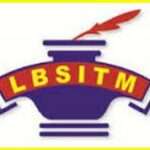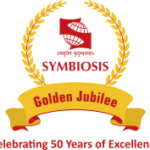The Symbiosis National Aptitude Test (SNAP) is a national-level MBA entrance exam conducted by the Symbiosis International (Deemed) University (SIU) for admission to the postgraduate management programs offered at its 16 constituent institutes across India. SNAP exam preparation is a computer-based test (CBT) held annually in December.
SNAP exam preparation
The Symbiosis National Aptitude Test (SNAP) is a computer-based test (CBT) conducted annually by the Symbiosis International (Deemed) University (SIU) for admission to the postgraduate management programs offered at its 16 constituent institutes across India. SNAP is one of the most popular MBA entrance exams in India, with over 3 lakh candidates appearing for the test annually.
SNAP Exam Syllabus and Pattern
The SNAP exam syllabus covers three main sections:
- General English: This section tests the candidate’s ability to understand and use English effectively. Questions include grammar, vocabulary, comprehension, and précis writing.
- Quantitative, Data Interpretation & Data Sufficiency: This section tests the candidate’s quantitative aptitude and ability to interpret and analyze data. Questions include arithmetic, algebra, geometry, data tables, charts, and graphs.
- Analytical & Logical Reasoning: This section tests the candidate’s ability to analyze information, make logical deductions, and solve problems. Questions include critical reasoning, puzzles, and logical reasoning.
The SNAP exam is a 60-minute test with 60 multiple-choice questions. Each section has 20 questions. There is no negative marking for incorrect answers.
How to prepare for SNAP exam
Preparing for the Symbiosis National Aptitude Test (SNAP) requires a comprehensive approach that encompasses understanding the exam pattern, syllabus, and effective study strategies. Here’s a detailed guide to help you ace the SNAP exam:
1. Understand the Exam Pattern and Syllabus:
- Thoroughly familiarize yourself with the SNAP exam format, including the number of questions, duration, and section-wise distribution.
- Carefully review the SNAP syllabus to ensure you cover all the topics and subtopics mentioned.
2. Create a Structured Study Plan:
- Develop a realistic and achievable study plan that allocates adequate time for each section.
- Prioritize sections based on your strengths and weaknesses, but ensure you cover all topics thoroughly.
- Schedule regular breaks to maintain focus and prevent burnout.
3. Gather Comprehensive Study Materials:
- Collect a wide range of reliable study materials, including textbooks, online resources, and previous year question papers.
- Utilize official SNAP study material released by SIU to guarantee accuracy and relevance.
4. Practice with Previous Year Question Papers:
- Solve previous year question papers to understand the exam pattern, question type, and marking scheme.
- Analyze your performance to identify areas of strength and weakness, and focus on improving weaker areas.
5. Take Mock Tests:
- Enroll in mock tests to simulate the exam environment and assess your time management skills.
- Analyze your mock test results to identify areas for improvement and refine your exam strategy.
6. Strengthen Your English Skills:
- Read extensively to improve your vocabulary and comprehension skills.
- Practice grammar exercises and focus on common errors.
- Work on précis writing to enhance your summarization skills.
7. Enhance Quantitative Aptitude:
- Revise fundamental concepts of arithmetic, algebra, and geometry.
- Practice solving data interpretation and data sufficiency problems.
- Develop a strong foundation in number systems, averages, percentages, and ratios.
8. Improve Analytical and Logical Reasoning:
- Practice solving puzzles, critical reasoning questions, and logical reasoning problems.
- Develop strategies for pattern recognition, problem-solving, and logical deductions.
- Improve your ability to analyze information, draw inferences, and make sound judgments.
9. Time Management:
- Practice time management techniques to maximize your score within the limited time frame.
- Prioritize answering high-scoring questions first, and then move on to moderate-level questions.
- Avoid spending too much time on a single question, and move on if you’re stuck.
10. Stay Focused and Motivated:
Maintain a healthy lifestyle with adequate sleep, nutrition, and physical exercise.
- Stay motivated by visualizing your success and setting achievable goals.
- Seek guidance
SNAP exam study tips
- Join study groups or online forums to interact with fellow aspirants and share strategies.
- Seek clarifications and address concepts you find challenging.
- Stay up-to-date with the latest exam pattern and syllabus changes.
- Manage exam anxiety through relaxation techniques and positive self-talk.
SNAP exam strategy
- Understand the exam pattern and syllabus thoroughly.
- Create a structured study plan and allocate adequate time for each section.
- Gather comprehensive study materials, including official SNAP resources.
- Practice with previous year question papers and mock tests regularly.
- Strengthen your English skills, quantitative aptitude, and analytical and logical reasoning abilities.
- Develop effective time management strategies.
- Maintain a healthy lifestyle and stay focused and motivated
SNAP exam syllabus
Section 1: General English
- Grammar (including spotting errors, sentence construction, and verb tenses)
- Vocabulary (including synonyms, antonyms, and usage)
- Comprehension (including reading comprehension, cloze tests, and précis writing)
Section 2: Quantitative, Data Interpretation & Data Sufficiency
- Arithmetic (including number systems, averages, percentages, and ratios)
- Algebra (including equations, inequalities, and functions)
- Geometry (including basic shapes, angles, and coordinates)
- Data Interpretation (including tables, charts, and graphs)
- Data Sufficiency (including interpreting data and evaluating the sufficiency of data for solving problems)
Section 3: Analytical & Logical Reasoning
- Critical Reasoning (including evaluating arguments, identifying assumptions, and drawing conclusions)
- Puzzles (including logical reasoning puzzles and pattern recognition)
- Logical Reasoning (including syllogisms, analogies, and problem-solving)
Free SNAP exam preparation resources
Official SNAP Website:
Navigate the dedicated SNAP exam section on the Symbiosis International (Deemed) University (SIU) website. Unearth comprehensive details on the exam pattern, syllabus, registration protocols, and access previous year question papers.
Previous Year Question Papers:
Harness the power of familiarity by tackling previous year question papers, accessible on the SIU website, as well as platforms like EduGorilla and Shiksha.
Online Mock Tests:
Gauge your preparedness with free SNAP mock tests offered by various platforms, including Oliveboard and BYJU’S Exam Prep.
YouTube Channels:
Delve into SNAP exam preparation through instructional videos on YouTube channels like Verbal Mantra, Cracku, and CLearning.
Online Forums and Discussion Groups:
Connect with fellow SNAP aspirants on online forums such as Cracku, PaGaLe, and InsideIIM. Share insights, tips, and strategies to enrich your preparation.
Free Study Materials:
Access an array of free SNAP exam study materials, including PDFs, eBooks, and practice questions, from websites like EduGorilla, Shiksha, and Gradeup.
SNAP Exam Preparation FAQ
One month is too less a time to prepare for not only SNAP but also any other exam. You need at least three months to prepare for the SNAP exam, but even for that you need to be familiar with the SNAP syllabus.
SNAP 2023 exam preparation within three months can be manageable, especially if candidates are already studying for other MBA entrance exams. The key is to concentrate on the SNAP 2023 syllabus and practice the previous year’s question papers.
The SNAP 2023 Exam is quite easy as compared to other management exams, and if aspirants are preparing for other MBA entrance exams like the CAT, XAT, IIFT, and CMAT, they can prepare for SNAP in a month because the snap syllabus is similar.










